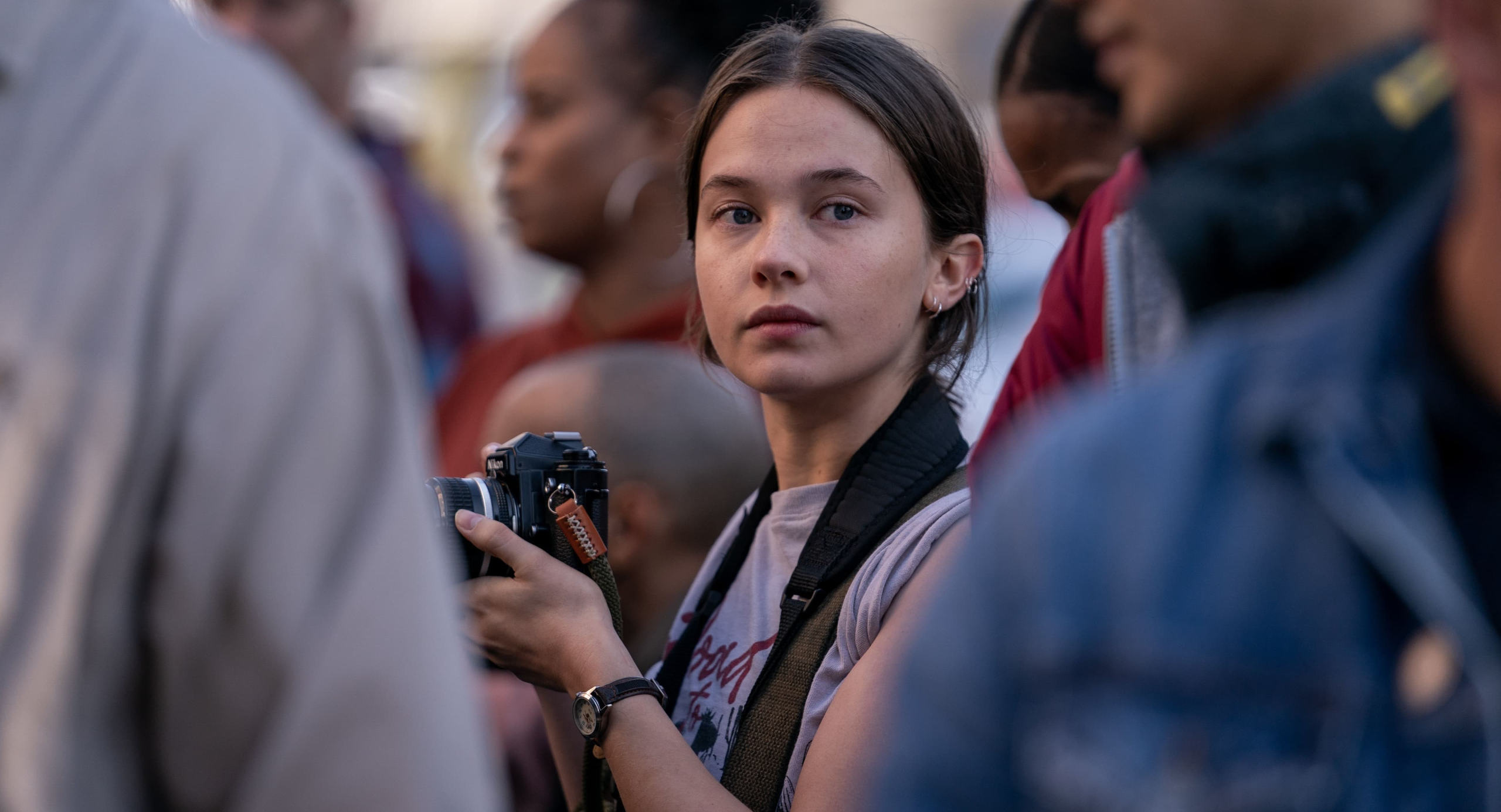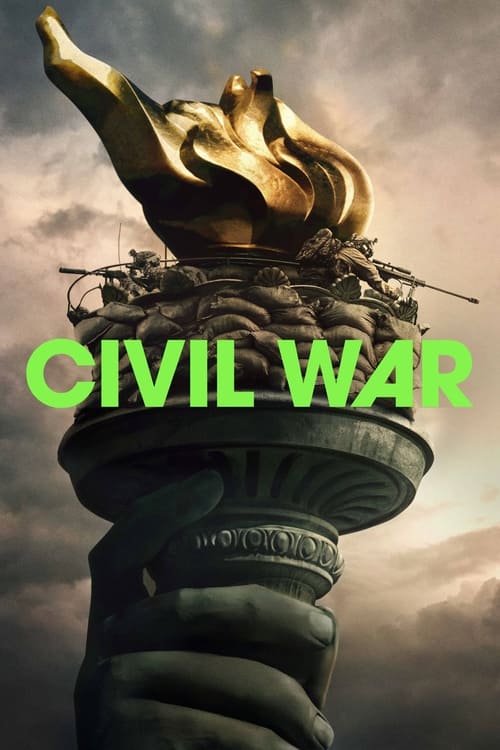Civil War – Film Review
Published April 13, 2024

When you go to the theatre to see a brand new Alex Garland movie, you know that it’s not going to be a conventional movie by any means. Even his most accessible movie in my opinion – Ex Machina – is still an absolutely enthralling and bizarre dive into science fiction, which can also be said about his follow-up film Annihilation. And although I know that a lot of people out there loathe Men with a passion, I personally think it’s an excellent horror film that never fails to get under my skin, even if it’s maybe not as good as it was the first time I saw it.
Although I was familiarized with Garland’s filmography before seeing his latest film Civil War, nothing could’ve truly prepared me for the emotionally taxing and genuinely depressing journey the movie was going to take me on. It’s the kind of movie that, as soon as the credits are finished rolling, you feel absolutely disgusted to your core but you also recognize that the film that you just watched is a total work-of-art. Truth be told, Civil War will be a difficult movie to rewatch because of its imagery and subject matter, but it’s also one of the best movies of the year, and one of the best war movies ever made.
It stands out as a profound commentary on the fabric of American society and politics through the lens of a dystopian war drama. Set in a future America where divisions have escalated into a full-blown Second Civil War, the film intricately explores themes of loyalty, ideology, and the price of freedom through the journey of a team of journalists navigating the ravaged landscape. With a cast led by Kirsten Dunst, Wagner Moura, Cailee Spaeny, Stephen McKinley Henderson, Sonoya Mizuno, and Nick Offerman, the film delivers a powerfully resonant narrative that captivates from start to finish.
Garland’s screenplay weaves a harrowing tale that, while dystopian, feels uncomfortably possible, painting a grim picture of a nation torn asunder by its own contradictions. Kirsten Dunst’s portrayal of Lee Smith, a photojournalist caught between her duty to report the truth and the dangerous realities of the war, is particularly compelling. Her character’s resilience and determination, juxtaposed with her vulnerabilities, make for a nuanced performance that anchors the film. Wagner Moura’s Joel serves as a fitting counterpart, blending cynicism with an unexpected depth of emotion that Moura brings to life with skill.
The young Cailee Spaeny, as the aspirational Jessie, represents the heart of the film. Through her eyes, we witness the transformation from naivety to the stark realization of war’s brutalities. One can only hope that Spaeny continues to receive incredible roles. Honestly, I’d go as far as to say that she deserves an Oscar for this performance.
Stephen McKinley Henderson’s portrayal of the wise yet fatalistic Sammy offers a masterclass in supporting roles, leaving an indelible mark despite limited screen time. Meanwhile, Nick Offerman’s casting as the President—serving an unprecedented third term—was an inspired choice. Offerman channels an unsettling blend of charisma and menace, making the dictator all the more believable and chilling.
Garland’s direction is meticulous, crafting scenes of urban warfare and quieter moments of introspection with equal care. His choice to showcase the stark contrast between the chaos of the battlefield and the eerie normalcy found in pockets of the war-torn nation underscores the absurdity and tragedy of civil conflict. The pacing of the film, coupled with its haunting score and visually arresting cinematography, builds a crescendo that leaves viewers on the edge of their seats. Particularly noteworthy are the action sequences in Charlottesville, Virginia, and the heart-pounding ending, both of which showcase Garland’s ability to handle large-scale set pieces without losing focus on the human element.
The film’s commentary on journalism—its power, importance, and the risks journalists face—is another layer that adds depth to the narrative. The ethical dilemmas confronted by Lee and her team as they document the atrocities of war challenge the audience to consider the role of media in shaping perceptions of conflict.
The bold narrative choice forces the audience to confront the moral ambiguity of vengeance and justice in times of war. It’s a testament to Garland’s willingness to delve into the darker aspects of human nature and the complexities of revolutionary change. The chilling final image of the film, while unsettling, serves as a powerful reminder of the cyclical nature of violence and the potential for history to repeat itself.
Civil War is a masterful addition to the genre of dystopian war films, offering a riveting, albeit bleak, vision of America’s future that resonates with the current global political climate. With standout performances, particularly from Dunst and Moura, and Garland’s expert direction, the film achieves a rare balance of thrilling entertainment and thoughtful commentary. Civil War not only thrills but also invites reflection on the very ideals upon which nations are built and the fragility of democracy in the face of authoritarianism and internal strife.
